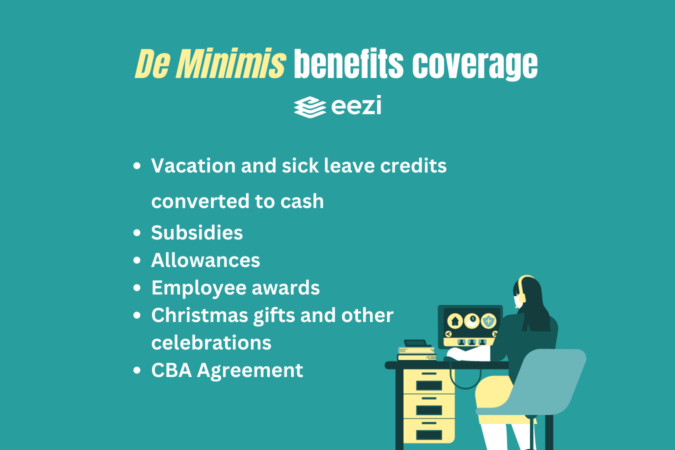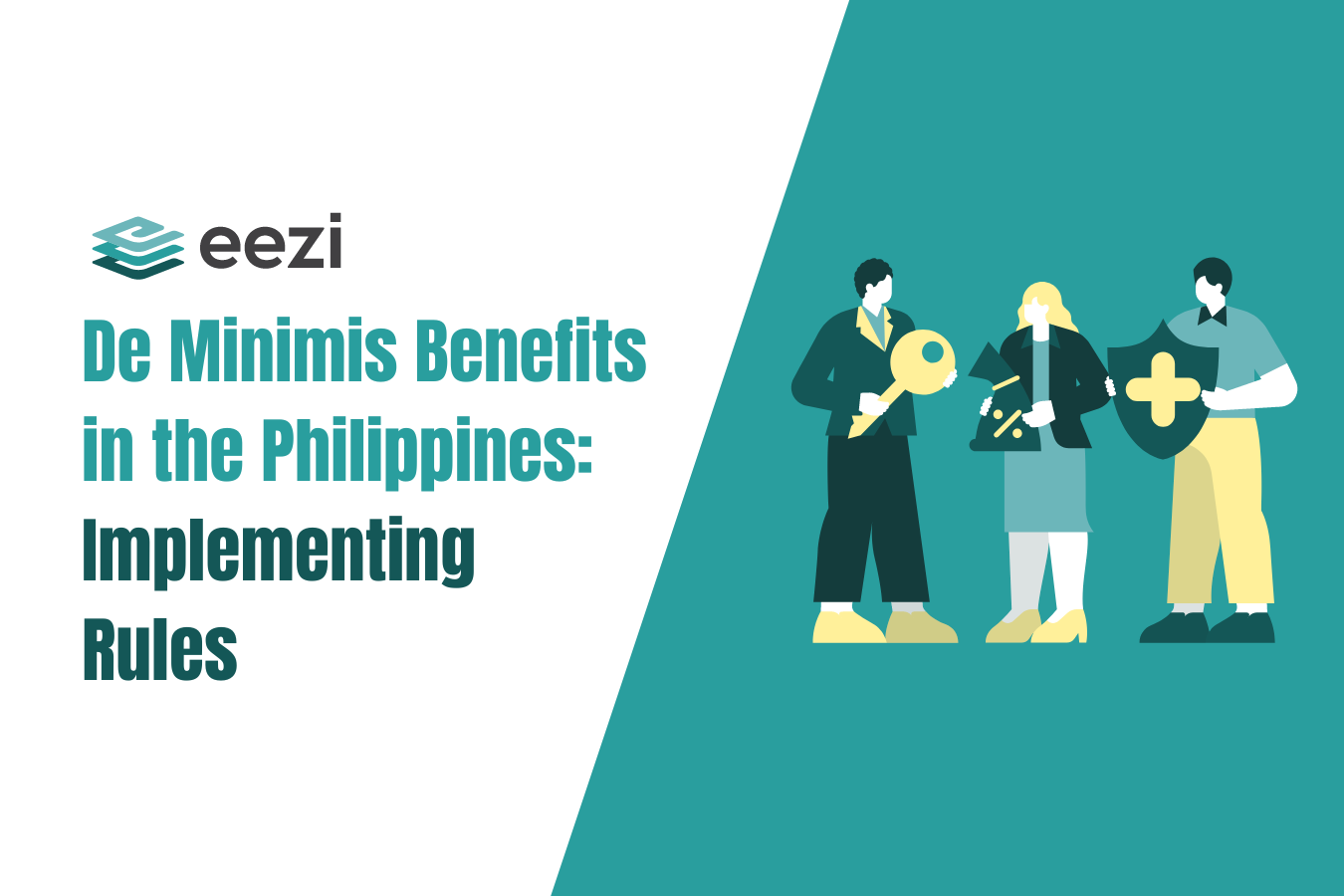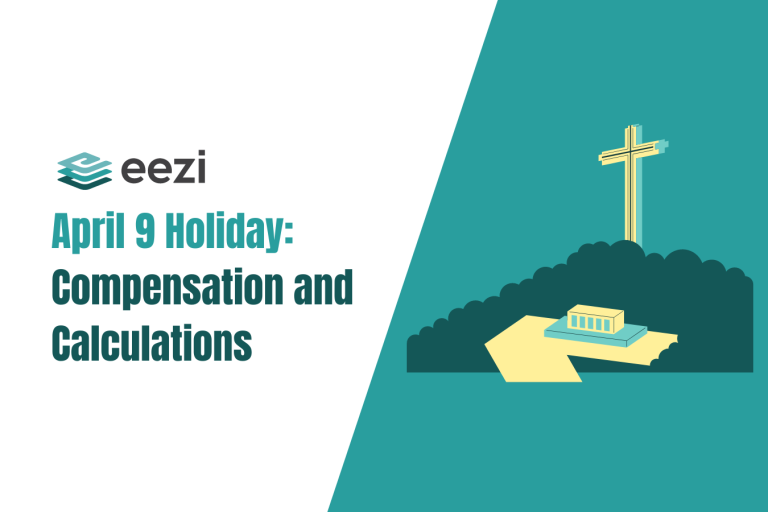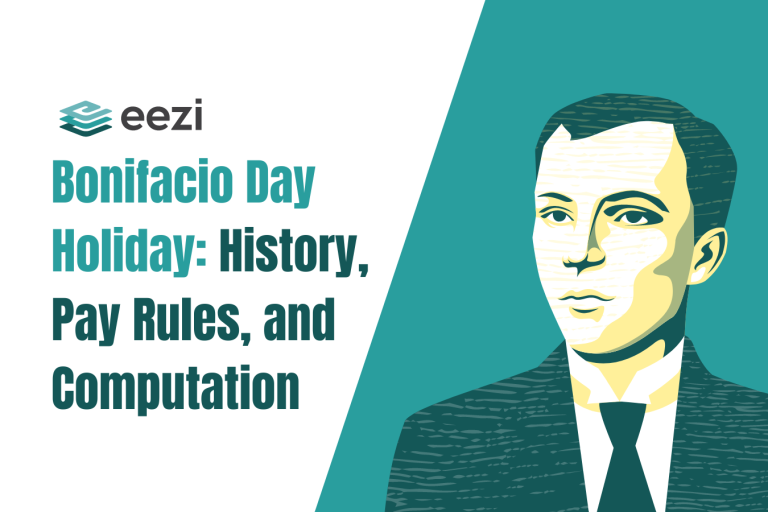What are the rules on de minimis benefits in the Philippines, and how did the TRAIN Law change them?
Key Points
- De Minimis benefits are relatively small, tax-free perks an employee receives as a form of compensation.
- It is not taxable as long as its value does not exceed Php 90,000 annually.
- The TRAIN Law increased the tax exemption cap from Php 82,000 to 90,000 annually.

De minimis benefits are non-taxable allowances or perks that employers give their employees in the Philippines. Usually, there are of relatively small value or a minimal amount.
To know more about this benefit, here are the answers to some common questions about de minimis benefits:
What is de minimis in the Philippines?
Private employees often receive benefits that are not part of their basic minimum wage. When relatively small in value or amount, these are classified as de minimis benefits.
These include non-taxable benefits, allowances, or perks given by employers to their employees in the Philippines. When they are below the cap, these benefits are generally not subject to income tax.
What differentiates de minimis from fringe benefits?
Fringe benefits and de minimis benefits are very similar, with the exception that fringe benefits usually are of more significant, of tangible value, and are frequently taxable. On the other hand, de minimis benefits are often of low value and are typically not subject to taxation.
De minimis benefits are tax-free as long as they don’t surpass the BIR-specified thresholds, while fringe benefits are subject to a 35% tax rate.
Examples of non-essential benefits that are part of an employee benefits package are wellness initiatives, retirement plans, employee stock options, health insurance, and child care assistance.

eezi HR Guide
Learn how to make a simple yet compliant pay slip for your employees.
What are examples of de minimis benefits?
Below is the list of De Minimis benefits employees can receive in 2024 following the updates under Revenue Regulations No. 11-2018:
- Private employees’ unused leave credits converted to cash (maximum of 10 days)
- Government officials’ vacation and sick leave credits paid in cash
- Medical cash allowance to dependents (no more than Php 250 per month)
- Rice subsidy (no more than Php 2,000 per month)
- Uniform and clothing allowance (no more than Php 6,000 per year)
- Actual medical assistance, such as maternity assistance and other medical and healthcare needs (no more than Php 10,000 per year)
- Laundry allowance (no more than Php 300 per month)
- Employees’ achievement awards (no more than Php 10,000 in annual monetary value under an established written plan; not favoring highly-paid employees)
- Gifts during Christmas and major anniversary celebrations (must be tangible personal property, no more than Php 500 per year)
- Daily meal allowance for overtime work (no more than 25% of the regional basic minimum wage)
- Benefits under the (CBA) or Collective Bargaining Agreement and productivity incentive schemes (combined amount must be no more than Php 10,000 per taxable year)
- Transportation allowance and other benefits not exceeding a certain monetary value
Should any of these items exceed their limits and the Php 90,000 per year, these items become taxable. Furthermore, employees in supervisory or managerial positions must pay the fringe benefits tax.
Related: Employee Tenure Benefits in the Philippines
eezi HR Guide
Stay compliant with the required employee benefits in the Philippines.
Why provide de minimis benefits?
De minimis benefits can impact companies and employees in the following ways:
Benefits for employees
Boost engagement and morale
When employees receive minimal benefits, they are more content and invested in their work. Free coffee, small presents for the holidays, free lunches on occasion, or recognition prizes are examples of de minimis bonuses that help employees feel valued and appreciated.
Improved company culture
Employees who receive de minimis benefits feel more engaged and appreciated at work because of the positive and encouraging environment they contribute to. The consideration and care they receive from their employers strengthen their sense of belonging and community.
Boosted productivity
De minimis benefits are an effective approach for improving worker productivity and performance. Businesses may accomplish their goals more quickly when their workforce is highly productive and driven.
For instance, providing an employee with a monthly medical allowance shows that the employer is concerned about their well-being and assists them in covering small medical costs. This praise increases their motivation and morale, which boosts their productivity and helps them stay focused on their work.
Consequently, the company’s overall productivity expands, making it easier for it to meet deadlines, boost customer happiness, and eventually accomplish its goals more successfully.
Benefits for employers
Cost-effective approach to reward employees
De minimis benefits are something that startups and small businesses on a tight budget should think about including in their benefits package if they’re searching for a meaningful yet affordable approach to reward employees.
Draw in and keep top talent
When de minimis are offered as extra benefits, a business might attract more candidates by enhancing its services.
Companies who tailor their de minimis benefits package to suit their requirements and preferences might improve job satisfaction and retain current staff. For instance, providing benefits like a monthly rice subsidy, small holiday presents, occasional complimentary dinners, or reimbursement for transportation expenses can help employees feel appreciated and cared for.
Modifying these benefits to each employee’s preferences not only shows them that the company is aware of their demands but also improves their overall work experience, which increases employee loyalty.
Lower rate of absenteeism
The Philippines workforce suffers greatly from absenteeism, and businesses frequently experience lower productivity and higher operating expenses as a result.
Employers can help employees deal with this problem by providing little incentives like wellness checks, complimentary snacks, or occasionally compensated time off for running errands.
Higher attendance and lower absenteeism rates are more common among workers who feel valued and appreciated. This helps to create a consistent and productive work atmosphere.
How much are de minimis benefits in the Philippines?
De minimis benefits are non-taxable up to a certain monetary limit, which is currently set at Php 90,000 per year. This means that if the total value of the benefits received by an employee within a year does not exceed Php 90,000, they will not be subject to income tax.
What if the de minimis benefits exceed the Php 90,000 limit?
Should the total bonuses for the year, including the de minimis benefits, exceed the Php 90,000 limit, it will be subject to the withholding tax rates of rank-and-file employees. In contrast, the Fringe Benefits Tax (FBT) of 32% will apply if the employee holds a managerial position.
Is de minimis part of the 13th-month pay?
No, de minimis benefits are not part of the 13th-month pay. The 13th-month pay is a separate benefit mandated by law, which requires employers to pay their employees an additional month’s worth of salary by December 24th of each year. Moreover, it is not included when computing the 13th-month pay as it only factors the employee’s basic salary.
Is it included in the basic salary?
No, de minimis benefits are not included in an employee’s basic salary. They are separate from the employee’s regular salary and are given as additional perks or allowances.
What is the de minimis limit in the Philippines?
The de minimis and other bonuses limit in the Philippines is currently set at PHP 90,000 per year. This means that if the total value of the de minimis benefits received by an employee within a year does not exceed PHP 90,000, they will not be subject to income tax.
What is the new de minimis benefits rule under the TRAIN Law?
Under the Tax Reform for Acceleration and Inclusion law, there have been changes to the previous de minimis benefits that employees enjoy. Mostly, it clarifies what items are exempt from income tax and withholding tax.
Starting in 2018, the following changes were made to the de minimis benefits under the TRAIN law:
Increase in total annual value
The law increased the total annual value of de minimis benefits that employees can receive from Php 82,000 to Php 90,000.
New de minimis inclusions
The TRAIN Law also added the following under de minimis benefits:
- Rice subsidy cap
- Uniform and clothing allowance
- Actual medical benefits
- Laundry allowance cap
- Employees’ achievement awards or loyalty awards with monetary value
- Rules on the gifts on Christmas and major anniversary celebrations
Increase in tax-exemption
TRAIN increased the law tax-exempt threshold for the 13th-month pay and other benefits from Php 82,000 to Php 90,000. In other words, benefits amounting to Php 90,000 or less are non-taxable.
De Minimis beyond Php 90,000
Anything in excess of the Php 90,000 bonus threshold is taxable under the law.
Related:
Are these benefits subject to withholding tax?
In the Philippines, de minimis benefits are generally not taxable compensation. In other words, they are not subject to income tax and withholding tax on compensation by default. However, some de minimis items have caps, and the allowable amount of tax exemption for de minimis benefits is Php 90,000.
Stay compliant with your employee benefits.
Try eezi‘s automated payroll solutions and keep your business up-to-date and compliant with the law.



